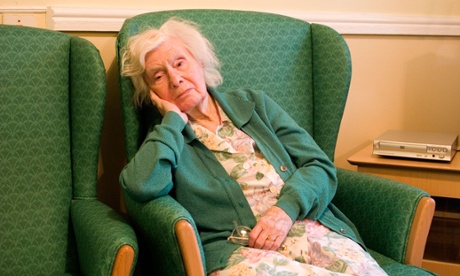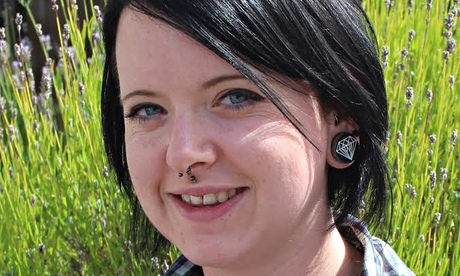Former hod carrier George Foster describes himself as “technophobic”. But when he was given the chance to have Xbox technology, driven by artificial intelligence, installed in the sitting room of his Salford home to monitor his every movement, he saw the chance to ensure his continued independence.
The 63-year-old – who is prone to what he calls the “wobbles” – has just participated in a groundbreaking pilot called MiiHome, testing low-cost monitoring technology in the homes of 10 volunteers living in sheltered accommodation. The researchers are trying to work out how it can be used to prevent falls and unnecessary hospital admissions.
For Foster, the potential is clear. “I do not like being mithered, so I don’t want a [care worker] coming in to check on me all the time,” he says. “My idea for the future would be for the computer to detect a fall – and to nudge me if I forgot to take my medicines. But if it detected that I had been in bed for too long, I would like a person to come round.”
His idea is more than a dream, but still very much a work in progress. The major finding of the collaborative project – involving Salford University’s department of autonomous systems and advanced robotics, Salford Royal hospital, Manchester University and social housing provider Salix Homes – was identifying the gap between what happens in the laboratory and the day-to-day reality of people’s homes.
Foster’s dog, Lady, is a good example. Researchers had not anticipated that the monitor camera (which uses Microsoft Kinect technology to plot the position of 25 points on a participant’s skeleton) would conclude that Foster had had a fall every time he bent down to pet Lady. They could not have known, either, that infrared from the sun shining into some of the flats would also confuse the cameras, as did the arrival of visitors.
Prof Samia Nefti-Meziani, artificial intelligence expert at the University of Salford, says: “The pilot study has been invaluable. The challenge I am setting myself is how we can use very cheap technology with very complex artificial intelligence to create an advanced product. But the real world is far more complex than anything we do in the lab.”
The recently completed first phase of MiiHome involved 10 Salix Homes residents and gathered data on their usual walking speed and general activity patterns to build a baseline measure of how each individual behaves. The cost of the equipment was less than £100.
Another larger study will start soon, involving 128 Salix residents and the same technology, this time in real time. The aim is to assess gait, swaying on standing and time taken to stand, to establish how this information is linked with an illness or a fall.
Falls leave 280,000 people a year in A&E and cost the NHS £1.5bn anually, according to the Chartered Society of Physiotherapy. There is a clear link between falls and deprivation. So areas of high deprivation like Salford have an acute need to find monitoring solutions.
Dr Anthony Hodgson, dementia and ageing research lead at Salford Royal, explains: “Nurses will tell you that a patient is ‘going off’ before their condition deteriorates. We want to see if there are things that one can detect that are predictive of a serious deterioration in people’s lives – say a week ahead – so that preparation can be made to prevent it.”
Avatar technology is being lab tested by robotics experts at Salford University, who have created a robot called Teddy, which can keep tabs on a number of physiological aspects of the body, as well as track medication, food intake, and detect falls. It can also speak to a patient and call emergency services.
Salix Homes is considering incorporating monitoring technology into its housing at the construction stage, to avoid the difficulties many elderly people have with alarm buttons and other “wearables”, which a number either do not like to use or forget to put on. But service director, Jonathan Drake, is clear that home technology has to be adopted on an opt-in basis: “People have to want it. It should not be imposed in any way.”
He also believes that technology’s role is to release more time for care workers to provide support, particularly for those living in social isolation. He says: “For us technology is there to get more people out into the community, where they belong, working and talking with our tenants.”











